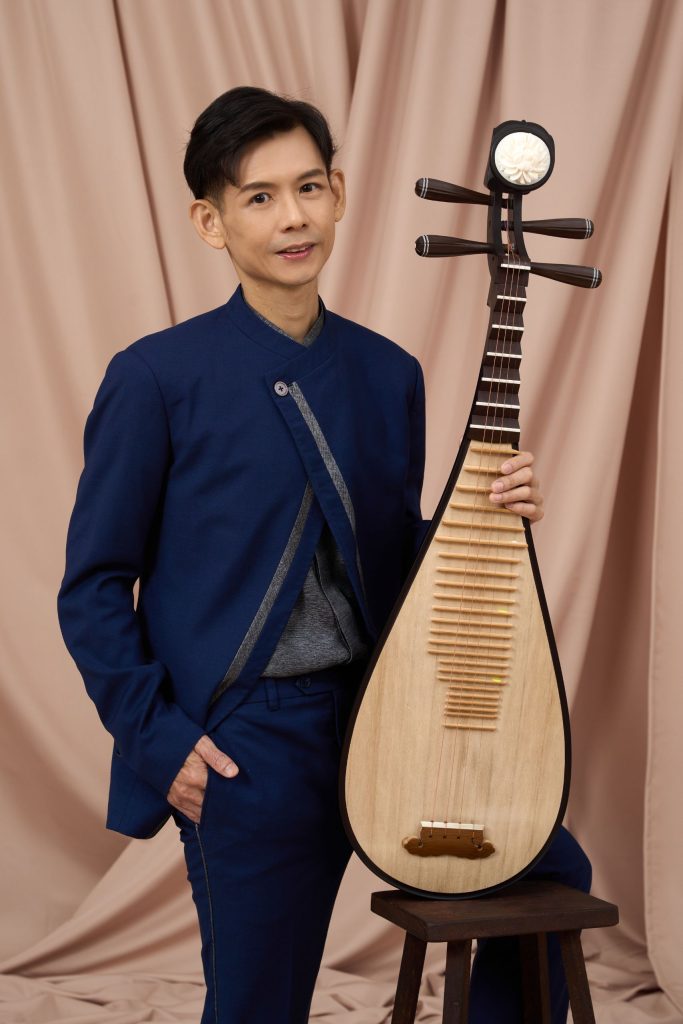Chua Yew Kok is a pipa musician in Ding Yi Music Company, which he co-founded in 2007.
One of his most savoured memories is of the fledgling ensemble clinching the first prize at the 2008 National Chinese Music Competition. Ding Yi went on to receive top honours at the prestigious Llangollen International Musical Eisteddfod held in Wales in 2009, and Silver at the Shanghai Spring International Music Festival in 2011.
An expressive, highly versatile performer, Chua has forged an impressive career as an award-winning pipa instrumentalist and an educator. He picked up the pipa at the age of 14 and went on to give standout solo performances in Singapore and internationally, with notable ensembles and orchestras such as the Singapore Chinese Orchestra.
Among various international awards, Chua won first prize at the Singapore 1998 National Chinese Music Competition in the pipa open category. He was also accorded the National Arts Council Young Artist Award in 2013, Singapore’s highest award for arts practitioners aged 35 and below.
He earned a Bachelor of Music (Honours) from the Nanyang Academy of Fine Arts in 2006, and a master’s degree in arts from the China Conservatory of Music in Beijing.
Committed to preserving Singapore’s traditional Chinese music and its legacy for future generations, Chua teaches pipa at various schools as a sectional instructor and serves on the secretariat of Singapore Pipa Society.
蔡老师 (Teacher Chua), as he is often called by students and fellow musicians alike, is equal parts passion, equal parts – he puts it – “randomly creative, randomly curious”. His artistic personality “brings surprise elements during music-making”, according to Ding Yi co-founder Chin Yen Choong.
“I chose to specialise in the art of Chinese pipa performance and teaching because it connects me to my cultural roots as a Singaporean Chinese. Despite living in a multicultural society, I believe it’s important to preserve and share our heritage,” he explains.
“The pipa is a unique instrument with a rich history and beautiful sound that captivates audiences. Teaching this artform not only allows me to pass on this tradition, but also promotes cultural appreciation and understanding among different communities.”
